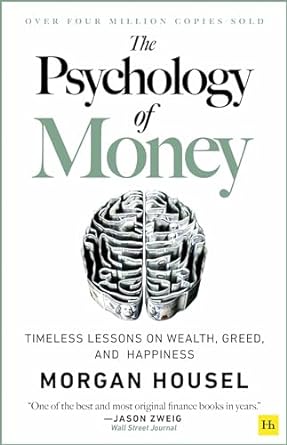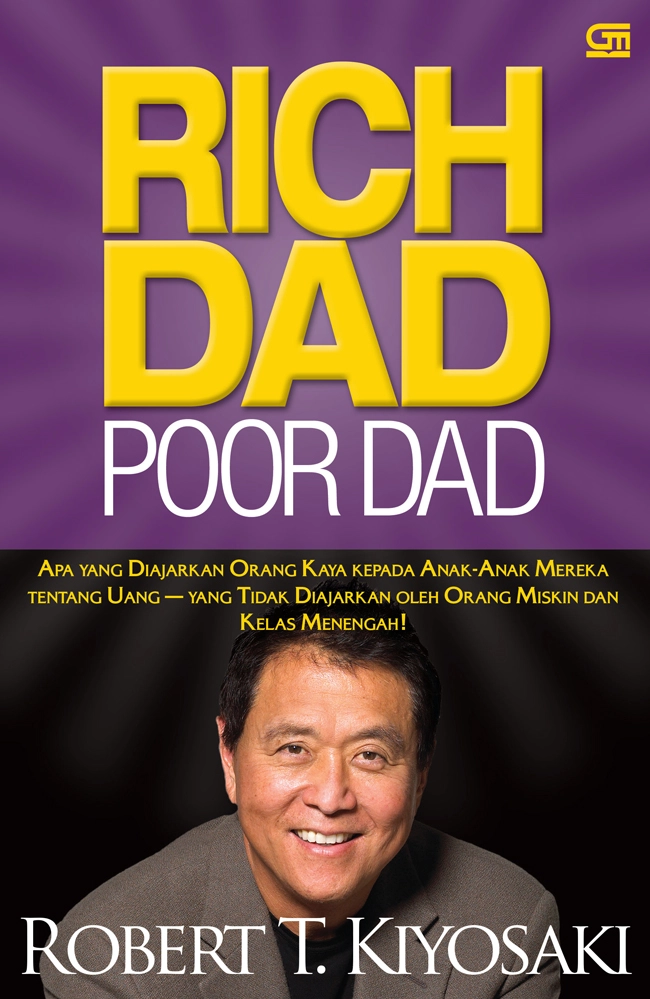Personal finance is one of the most important topics that everyone should learn and master. It can help you achieve your financial goals, secure your future, and live a happier and more fulfilling life. However, personal finance can also be confusing and overwhelming, especially if you don’t have the right guidance and resources. That’s why reading books on personal finance can be a great way to learn from the experts, gain new perspectives, and discover proven strategies that work. In this blog post, we have compiled a list of the 10 best personal finance books of all time that you must read. These books will teach you everything you need to know about money, from how to manage it, save it, invest it, grow it, and use it wisely. Whether you are a beginner or an advanced reader, you will find something valuable and inspiring in these books. Here are the 10 best personal finance books of all time that you must read.
By this time materials are not available in our website. we will put links later but for now we will put amazon affiliate link
1. The Psychology of Money by Morgan Housel

“The Psychology of Money” by Morgan Housel is a thought-provoking exploration of the intricate relationship between individuals and their finances. Departing from conventional financial advice, Housel delves into the psychological underpinnings that influence our monetary decisions. Through a series of timeless principles, the book underscores the importance of self-awareness in understanding one’s financial behavior. By weaving real-life stories and relatable examples, Housel illustrates how human psychology shapes our financial choices and outcomes.
One of the central themes of the book is the recognition of the profound impact of emotions on money management. Housel argues that emotions such as fear and greed often drive financial decisions, sometimes leading to irrational behavior. By acknowledging and understanding these emotional drivers, readers can develop a more nuanced and effective approach to handling their finances. Housel’s emphasis on the psychological aspect of money sets the book apart, encouraging readers to reflect on their own behaviors and attitudes toward wealth.
Furthermore, “The Psychology of Money” advocates for embracing uncertainty as an inherent part of financial life. Housel emphasizes the unpredictable nature of the markets and the economy, urging readers to adopt a mindset that accommodates unforeseen challenges. Through engaging narratives and practical insights, the author encourages a shift in perspective from trying to predict the future to preparing for it, ultimately promoting a more resilient and adaptable financial approach.
In conclusion, Housel’s book offers a compelling and accessible exploration of the psychological dimensions of personal finance. By blending practical advice with engaging stories, “The Psychology of Money” provides readers with valuable insights into the intricacies of financial decision-making, empowering them to make more informed and mindful choices in their journey toward financial well-being.
2. Rich Dad Poor Dad by Robert Kiyosaki

“Rich Dad Poor Dad” by Robert Kiyosaki is a personal finance classic that contrasts the financial philosophies and practices of two father figures in the author’s life: his biological father (referred to as “Poor Dad”) and the father of his childhood friend (referred to as “Rich Dad”). The book is structured as a series of lessons and anecdotes, highlighting the divergent approaches each “dad” took toward money, wealth-building, and investing.
Poor Dad, representing conventional wisdom, emphasizes the importance of education, job security, and a steady paycheck. He advocates for working for a stable job, saving money, and avoiding risks. In contrast, Rich Dad, an entrepreneur and investor, encourages Kiyosaki to prioritize financial education, take calculated risks, and invest in assets that generate passive income. The book underscores the significance of financial literacy and the difference between working for money and making money work for you.
Kiyosaki introduces key concepts such as assets and liabilities, emphasizing the need to acquire income-generating assets to achieve financial independence. He challenges conventional beliefs about money and success, advocating for a mindset that values financial education, entrepreneurship, and strategic investing. The book also emphasizes the importance of learning from failures and setbacks, viewing them as opportunities for growth.
“Rich Dad Poor Dad” has become widely popular for its straightforward and accessible approach to financial education. It encourages readers to question traditional financial norms and consider alternative paths to building wealth. The book has inspired many to rethink their approach to money, sparking a renewed interest in financial education and entrepreneurship. Overall, Kiyosaki’s work serves as a motivational and educational tool, encouraging readers to take control of their financial destinies and think differently about wealth creation.
3. The Total Money Makeover by Dave Ramsey

“The Total Money Makeover” by Dave Ramsey is a comprehensive guide to financial fitness and debt-free living. Ramsey, a renowned personal finance expert and radio host, outlines a step-by-step plan to help individuals take control of their finances, get out of debt, and build wealth. The book is structured around a set of seven Baby Steps, providing a clear roadmap for financial success.
The core philosophy of “The Total Money Makeover” revolves around the idea of living within one’s means and eliminating debt. Ramsey advocates for creating a budget, saving for emergencies, and systematically paying off debts using a debt snowball method. The debt snowball involves paying off the smallest debts first, gaining momentum, and then moving on to larger ones. This approach is designed to provide individuals with a sense of accomplishment as they eliminate debts, motivating them to stay on track.
Ramsey also emphasizes the importance of building an emergency fund, typically equivalent to three to six months’ worth of living expenses. This financial cushion serves as a safety net and helps prevent individuals from relying on credit cards or loans during unexpected circumstances.
Throughout the book, Ramsey provides practical advice on budgeting, investing, and making informed financial decisions. He encourages readers to adopt a cash-based lifestyle, using cash or debit cards instead of credit cards to curb overspending. Additionally, he promotes the concept of investing for the long term, making wise choices with insurance, and planning for retirement.
“The Total Money Makeover” has gained popularity for its no-nonsense, straightforward approach to financial management. It has resonated with a wide audience, especially those struggling with debt and looking for a structured plan to achieve financial freedom. Ramsey’s emphasis on personal responsibility, disciplined financial habits, and the power of debt elimination has made the book a go-to resource for individuals seeking a transformative journey toward financial health.
4. The Millionaire Next Door by Thomas J. Stanley and William D. Danko

“The Millionaire Next Door” by Thomas J. Stanley and William D. Danko is a groundbreaking exploration of the habits, characteristics, and lifestyles of America’s wealthy individuals. The book challenges common stereotypes of millionaires and reveals that many of them do not conform to the flashy, extravagant image often portrayed in the media.
The authors conducted extensive research to identify common traits among millionaires, and they present their findings based on surveys and interviews with affluent individuals. One key revelation is that many millionaires are not conspicuous consumers; instead, they tend to live frugally and prioritize saving and investing. The book introduces the concept of the “prodigious accumulator of wealth” (PAW) – someone who accumulates wealth efficiently through disciplined saving and investing – versus the “under-accumulator of wealth” (UAW) – someone who earns a high income but fails to accumulate significant wealth due to excessive spending and debt.
“The Millionaire Next Door” emphasizes the importance of financial discipline, hard work, and living below one’s means. The authors discuss the significance of budgeting, avoiding debt, and making wise investment decisions. They also stress the importance of education and entrepreneurship in building wealth.
One of the key takeaways is the idea that wealth is often accumulated quietly, and many millionaires may not stand out in terms of lifestyle or conspicuous consumption. The book challenges the notion that a high income necessarily leads to wealth and highlights the role of financial habits and choices in achieving financial success.
Overall, “The Millionaire Next Door” has had a profound impact on how people perceive wealth and has become a classic in personal finance literature. It encourages readers to reevaluate their financial behaviors, prioritize long-term wealth-building over short-term consumption, and adopt the habits that contribute to lasting financial success.
5. The Richest Man in Babylon by George S. Clason

“The Richest Man in Babylon” by George S. Clason is a classic in personal finance literature that imparts timeless principles of wealth-building through a collection of parables set in ancient Babylon. The book is structured as a series of stories and lessons, each imparting financial wisdom that remains relevant to this day.
The central theme of the book revolves around the “Seven Cures for a Lean Purse” and the “Five Laws of Gold.” These principles provide a simple yet powerful guide to accumulating and preserving wealth. The “Seven Cures” include advice on saving a portion of one’s income, making wise investments, and avoiding debt. The “Five Laws of Gold” highlight fundamental principles such as making money work for you, seeking wise counsel before making financial decisions, and ensuring a future income for oneself.
Through relatable characters and engaging narratives, Clason imparts practical financial advice with a focus on thrift, prudence, and the importance of building a solid financial foundation. The book emphasizes the value of discipline, patience, and continuous learning in the pursuit of financial success.
One of the memorable stories in the book is that of Arkad, the titular richest man in Babylon, who shares his wealth-building principles with a group of eager learners. Arkad’s journey from humble beginnings to financial prosperity serves as an inspirational and educational narrative that resonates with readers.
“The Richest Man in Babylon” has endured as a classic due to its simplicity and timeless wisdom. Its principles are applicable to various financial situations and have been embraced by readers seeking practical guidance for managing their finances. The book continues to be recommended for its ability to convey essential financial lessons in an accessible and enjoyable manner, making it a valuable resource for anyone on the path to financial success.
6. Think and Grow Rich by Napoleon Hill

“Think and Grow Rich” is a classic self-help and personal development book written by Napoleon Hill. Originally published in 1937, the book distills Hill’s philosophy of success based on his study of successful individuals, including business magnates and entrepreneurs, over a span of 20 years. The book remains influential and widely read, serving as a cornerstone for many motivational and success-oriented teachings.
The core principle of “Think and Grow Rich” is the power of the mind and the role of a positive mental attitude in achieving success. Hill asserts that one’s thoughts and beliefs can shape their reality and that a burning desire combined with faith and persistence can lead to the achievement of one’s goals. The book introduces the concept of a “Definite Chief Aim” and emphasizes the importance of clearly defining and pursuing one’s objectives.
Throughout the book, Hill outlines the “13 Principles of Success,” which include key concepts such as desire, faith, autosuggestion, specialized knowledge, imagination, organized planning, decision, persistence, the mastermind, the subconscious mind, the brain, and the sixth sense. These principles are presented through anecdotes, real-life examples, and practical advice to guide readers on their journey to success.
One of the most famous elements of “Think and Grow Rich” is the idea of creating a “Mastermind Group,” a collective of like-minded individuals working together to support and uplift each other in their pursuits. The book also emphasizes the importance of perseverance in the face of challenges and setbacks.
“Think and Grow Rich” has had a profound impact on the self-help genre and has inspired countless individuals to adopt a positive mindset and take proactive steps toward achieving their goals. While the title may suggest a focus solely on financial wealth, the principles outlined in the book are applicable to various aspects of life, promoting personal development and success in both professional and personal realms.
7. The Automatic Millionaire by David Bach

“The Automatic Millionaire” by David Bach is a personal finance book that focuses on the concept of making wealth-building automatic and achievable for everyone. Published in 2004, the book presents a straightforward plan for financial success that is based on setting up automatic systems and habits.
The central premise of “The Automatic Millionaire” is the idea that individuals can accumulate wealth by automating their savings and investment processes. Bach introduces the concept of “paying yourself first,” which involves automatically diverting a portion of your income into savings and investments before attending to other expenses. He advocates for setting up automatic contributions to retirement accounts, such as 401(k)s or IRAs, and emphasizes the power of compound interest over time.
The book also introduces the concept of “The Latte Factor,” which encourages readers to identify and cut out small, unnecessary expenses in their daily lives. By redirecting these funds towards savings and investments, individuals can accumulate significant wealth over the long term.
Bach provides real-life examples and success stories to illustrate how ordinary people can become millionaires by consistently and automatically saving and investing. He emphasizes the importance of starting early, taking advantage of employer-sponsored retirement plans, and harnessing the power of compounding.
In addition to automating savings, “The Automatic Millionaire” also covers the importance of homeownership, debt reduction, and making financial decisions that align with long-term wealth-building goals.
Overall, David Bach’s book presents a practical and accessible approach to achieving financial success without requiring a significant amount of time or financial expertise. By making financial habits automatic and consistently saving and investing over time, readers can work towards building wealth and securing their financial future.
8. Your Money OR Your Life by Vicki Robin and Joe Dominguez

“Your Money or Your Life” by Vicki Robin and Joe Dominguez is a personal finance book that offers a comprehensive and holistic approach to money management. Originally published in 1992 and updated in subsequent editions, the book provides a framework for individuals to transform their relationship with money and achieve financial independence.
The central theme of the book revolves around the idea that money is a representation of the time and energy we spend earning it. The authors introduce the concept of the “Money-Life” continuum, encouraging readers to evaluate their spending habits in terms of the life energy required to earn the money spent. The goal is to align spending with personal values and prioritize what truly brings fulfillment and happiness.
The book presents a nine-step program that guides readers through the process of transforming their financial lives. Some of the key steps include assessing current financial situations, tracking expenses, creating a realistic budget, and exploring ways to increase income. The authors also emphasize the importance of reducing debt, building an emergency fund, and investing wisely to achieve financial independence.
One distinctive aspect of “Your Money or Your Life” is its focus on the connection between money and well-being. The authors encourage readers to question societal norms around consumerism and challenge the notion that more spending leads to greater happiness. By becoming mindful of spending patterns and aligning expenses with personal values, individuals can work towards achieving financial freedom and a more fulfilling life.
The book incorporates practical exercises, real-life stories, and case studies to illustrate its principles. It encourages readers to adopt a frugal and intentional lifestyle, allowing them to break free from the cycle of consumerism and make conscious choices about their finances.
“Your Money or Your Life” has had a lasting impact on the personal finance genre, influencing many individuals to reassess their relationship with money and make conscious decisions that lead to greater financial freedom and life satisfaction.
9. Secrets of the Millionaire Mind by T. Harv Eker

“Secrets of the Millionaire Mind” by T. Harv Eker is a self-help book that explores the psychological aspects of wealth creation and success. Published in 2005, the book delves into the mindset and belief systems that differentiate successful individuals from those who struggle financially.
One of the key concepts in the book is the idea that one’s financial success is closely tied to their “money blueprint” – a set of beliefs and attitudes about money that influence their financial habits and outcomes. Eker argues that changing one’s financial situation requires understanding and reshaping this blueprint.
Eker identifies seventeen “Wealth Files,” which are mental programs or beliefs that rich people generally follow. These files include principles such as “Rich people believe ‘I create my life,'” “Rich people play the money game to win,” and “Rich people act in spite of fear.” By adopting these Wealth Files, individuals can transform their money blueprint and develop a mindset conducive to financial success.
The book also introduces the concept of the “Millionaire Mind Declaration,” a set of affirmations and declarations designed to reinforce positive beliefs about money and wealth. Eker emphasizes the importance of conscious thinking and the impact of thoughts on financial results.
“Secrets of the Millionaire Mind” combines practical advice with motivational insights, encouraging readers to take responsibility for their financial success and challenge self-limiting beliefs. Eker draws on his own experiences and observations, providing anecdotes and examples to illustrate his points.
Overall, the book serves as a guide for individuals seeking to change their financial mindset, develop positive money habits, and work towards achieving prosperity. While some may find the approach somewhat simplistic or focused on mindset over practical steps, the book has resonated with many readers as a source of inspiration and motivation in their financial journeys.
10. The Millionaire Fastlane by MJ DeMarco

“The Millionaire Fastlane” by MJ DeMarco is a provocative exploration of wealth creation that challenges conventional notions about financial success. Published in 2011, the book introduces the concept of the “Fastlane” as an alternative route to traditional paths like the “Slowlane” (typical employment) and the “Sidewalk” (unreliable ventures). DeMarco argues that the Fastlane involves creating scalable and efficient systems, starting a business, and focusing on accelerated wealth generation rather than slow and steady accumulation.
A central theme in the book is the Wealth Equation, where Wealth equals Net Profit plus Asset Value. DeMarco emphasizes the need to increase income (net profit) and build valuable assets simultaneously. He introduces five Fastlane Commandments, highlighting principles such as need, entry, control, scale, and time, which he believes are crucial for those adopting the Fastlane approach.
“The Millionaire Fastlane” provides readers with a roadmap for entrepreneurial success, advocating for the creation of valuable products or services, efficient use of time and resources, and scaling the business for maximum impact. The book underscores the importance of shifting one’s mindset toward entrepreneurship as a key means to achieve financial independence.
While some readers appreciate DeMarco’s direct and unconventional perspective on wealth-building, others find the book’s tone to be strong and opinionated. The narrative challenges traditional beliefs about money and encourages readers to question societal norms, urging them to pursue unconventional paths that align with the principles of the Fastlane for faster financial success. “The Millionaire Fastlane” is known for its impactful insights and unapologetic stance on redefining the journey to financial prosperity.
Conclusion
Reading books on personal finance can be a rewarding and enlightening experience. You can learn from the wisdom and experience of some of the best authors and experts in the field, and apply their insights and advice to your own financial situation. Whether you want to get out of debt, build wealth, retire early, or simply improve your financial literacy, you will find a book that suits your needs and goals in this list. We hope you enjoyed this blog post and found it useful. If you have any questions or comments, please feel free to share them below. And if you have read any of these books, we would love to hear your feedback and opinions. Happy reading and happy saving! 📚💰




